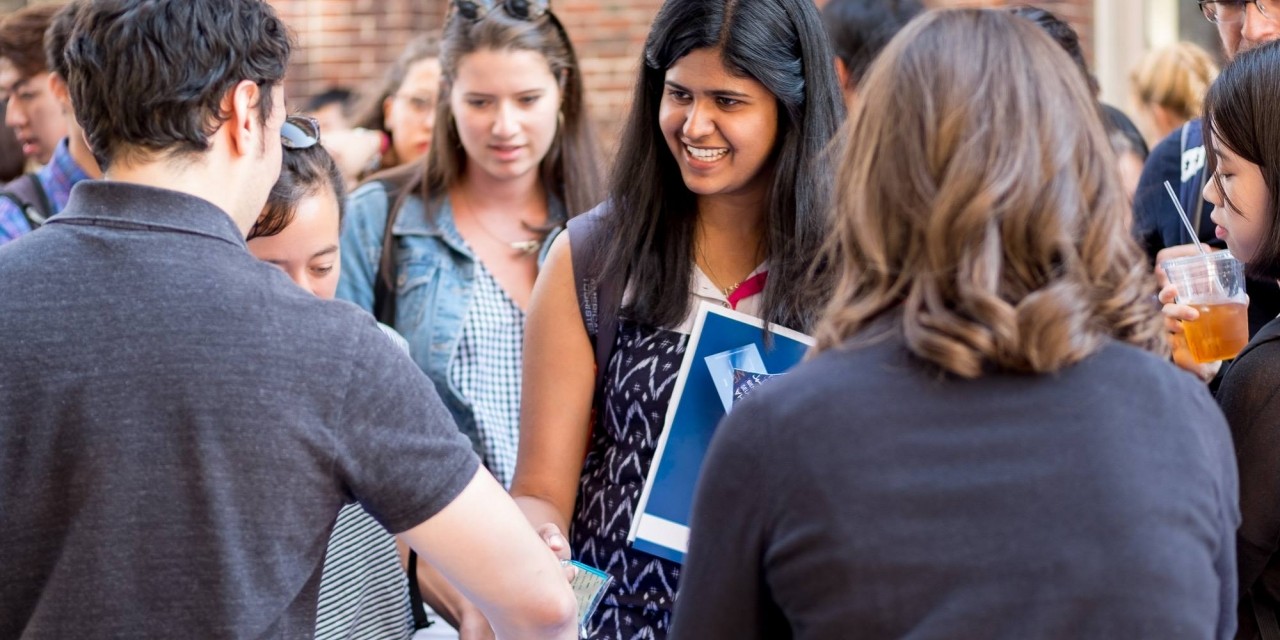Essential Advice for New Doctoral Students
The transition to doctoral study can be daunting. To help you navigate your first year at GSAS, we asked ten Columbia faculty members to share their words of wisdom for incoming PhD and DMA students.

“First, your professors are actually interested in you and your development. Take the time to talk with them outside of class. Most office hours are sadly underpopulated. Second, learn from your colleagues. You and your fellow graduate students are not only a community, you are great resources for each other. Finally, do take courses outside your areas of interest. You never know what connections you will be able to make and what new projects will develop.”
—Elaine Sisman, the Anne Parsons Bender Professor of Music
“Figure out what kind of work life you want. If it includes writing, sitting alone in a room, not being able to choose where you live, then being an R1 academic might be right for you. Some employers will be academic institutions, but some of them will not. Remember that there are lots of different kinds of academics.”
—Shamus Khan, Chair, Department of Sociology
“Talk to the faculty! Talk to your chair, your DGS, your advisor, other faculty members. The information you get from other graduate students is filtered through their experience and often incomplete. Information from faculty members can also be incomplete, so talk to lots of them. Understand what is expected and how to succeed. Knowledge is power.”
—David J. Helfand, Professor of Astronomy
“Here are the symptoms of stage fright: you become afraid that you have lost the highly developed skills that brought you here in the first place; you become afraid of exposure, that everyone else can see you, that you are a fraud, that there is something visible about you that clearly denotes your incapacity; and, last, that this sign is visible to others but invisible, only intuited but not seen by you (the toilet paper on your shoe). But what actors call stage fright is what everyone now knows as performance anxiety: it is situational. And it comes with the territory: my guess is you will feel it, and knowing that it is irrational only helps so much. The good news: you can and will overcome it, so hang in there. The slightly less good news: it really does come with the territory, so learn not just to get over it, but to let it motivate you a bit, too.”
—W.B. Worthen, Co-Chair, PhD program in Theatre, and the Alice Brady Pels Professor in the Arts at Barnard College
“Treat yourself to at least one great New York thing a month: a long walk in Central Park, shopping in the East Village, poetry slams, a trip to the Met or MoMA or across the Staten Island Ferry.”
—Sarah Cole, Dean of Humanities and the Parr Professor of English and Comparative Literature
“Check your own privilege and embrace diversity at all levels. We share a small campus where privilege and diversity coexist at a personal level as much as at an academic level. Students need to get outside their comfort zone and engage in truly interdisciplinary and intersectional work, and do it not only individually, but also while fostering research groups that also embrace diversity and accessibility.”
—Jesús R. Velasco, Professor, Department of Latin American and Iberian Cultures
“When you feel discouraged, remember that graduate school is one of the few ways you can turn a passion into a profession.”
—Pierre Force, Professor of French and History
“Set aside time in your first years of study to learn languages. It will give you access to other fields of research, allow you to participate in a more international community, and expose you to other ways of thinking.”
—Michael Cole, Chair, Department of Art History and Archaeology
“The members of your committee are not the audience you need to impress with perfectly formulated ideas and polished pieces of writing. Instead, understand that they are your teachers. Do not hesitate to present them with first drafts of your writing, asking them to help you develop your concepts further.”
—Branka Arsić, the Charles and Lynn Zhang Professor of English and Comparative Literature
“My advice is threefold: (1) Do not accumulate Incompletes; (2) Do not accumulate Incompletes; (3) Do not accumulate Incompletes. On a loftier level, you should always fully enjoy what you do and stay intellectually enthusiastic. Even in the darkest moments, you should remember that you are in the unique position of being required to devote your time and attention to something you are passionate about—a rare privilege, to be cherished and taken advantage of.”
—Francesco de Angelis, Chair, PhD program in Classical Studies
